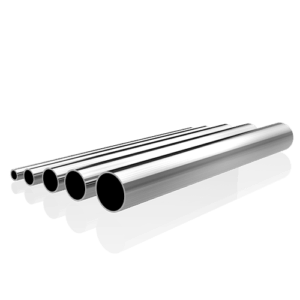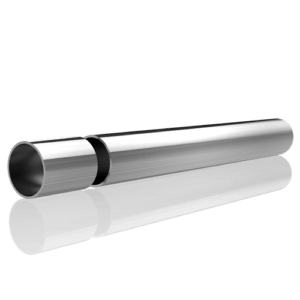Welcome to My Blog!
Before we dive into the content, I’d love for you to join me on my social media platforms where I share more insights, engage with the community, and post updates. Here’s how you can connect with me:
Facebook:https://www.facebook.com/profile.php?id=100090063158454
Now, let’s get started on our journey together. I hope you find the content here insightful, engaging, and valuable.
Introduction

Qilu 304 stainless steel tubing is renowned for its exceptional performance in a wide array of applications, owing to its corrosion resistance, durability, and aesthetic appeal. As a versatile material, Qilu 304 stainless steel tubing is widely used in industries ranging from construction to medical and food processing. This blog explores the key applications and uses of Qilu 304 stainless steel tubing, highlighting why it is a preferred choice in various sectors. We will also delve into its properties, benefits, and practical considerations to help you make informed decisions regarding its use.
Understanding Qilu 304 Stainless Steel Tubing
What is Qilu 304 Stainless Steel Tubing?
Qilu 304 stainless steel tubing is a type of tubing made from 304-grade stainless steel, known for its excellent resistance to corrosion and staining. It contains a composition of chromium (18%) and nickel (8%), which enhances its durability and strength. The tubing is manufactured through processes such as extrusion or drawing, resulting in a smooth, high-quality product suitable for numerous applications.
Key Properties
The key properties of Qilu 304 stainless steel tubing include:
- Corrosion Resistance: Excellent resistance to rust and corrosion, making it suitable for harsh environments.
- Strength and Durability: High tensile strength and resistance to wear and tear.
- Aesthetic Appeal: Polished surface that maintains its appearance over time.
- Temperature Resistance: Capable of withstanding a wide range of temperatures, from cryogenic to high heat.
Key Applications of Qilu 304 Stainless Steel Tubing
Construction and Architecture
In the construction and architecture industries, Qilu 304 stainless steel tube is used for both structural and decorative purposes. Its corrosion resistance makes it ideal for exterior applications such as railings, handrails, and structural supports. Additionally, its aesthetic quality ensures that it enhances the visual appeal of architectural designs.
Medical and Pharmaceutical Equipment
Qilu 304 stainless steel tubing is a critical material in the medical and pharmaceutical industries due to its hygienic properties and resistance to bacterial growth. It is commonly used in the manufacturing of medical devices, surgical instruments, and laboratory equipment. The tubing’s smooth surface helps in maintaining cleanliness and preventing contamination.
Food and Beverage Industry
In the food and beverage industry, Qilu 304 stainless steel tube is employed for its hygienic and corrosion-resistant qualities. It is used in the construction of piping systems for transporting liquids and gases, as well as in equipment such as food processing machines and beverage dispensers. The tubing’s ability to withstand frequent cleaning and sterilization makes it an ideal choice for this sector.
Automotive Industry
The automotive industry utilizes Qilu 304 stainless steel tubing for various components due to its strength and resistance to environmental factors. It is used in exhaust systems, fuel lines, and structural components where durability and corrosion resistance are crucial. The tubing’s high performance ensures long-lasting reliability in automotive applications.
Oil and Gas Sector
In the oil and gas sector, Qilu 304 stainless steel tube is employed in pipelines and equipment exposed to harsh conditions. Its resistance to corrosion and ability to withstand high pressures and temperatures make it suitable for transporting oil, gas, and other fluids. The tubing’s robustness ensures operational efficiency and safety in this demanding industry.
Properties and Benefits of Qilu 304 Stainless Steel Tubing
Corrosion Resistance
One of the primary benefits of Qilu 304 stainless steel tube is its superior resistance to corrosion. The chromium and nickel content in the tubing provides a protective layer that prevents rust and deterioration, making it suitable for use in both indoor and outdoor environments.
Durability and Strength
Qilu 304 stainless steel tubing is known for its durability and strength. It can withstand significant mechanical stress and impacts, making it a reliable choice for structural and heavy-duty applications. Its strength-to-weight ratio also contributes to its versatility in various uses.
Ease of Maintenance
The smooth surface of Qilu 304 stainless steel tubing makes it easy to clean and maintain. This is particularly important in industries such as food processing and healthcare, where hygiene is paramount. The tubing resists staining and maintains its appearance with minimal upkeep.
Temperature Tolerance
The tubing’s ability to perform well across a wide temperature range makes it versatile for various applications. Whether exposed to extreme cold or high heat, Qilu 304 stainless steel tube retains its mechanical properties and structural integrity.
Practical Considerations When Using Qilu 304 Stainless Steel Tubing
Cost vs. Performance
While Qilu 304 stainless steel tubing is generally more expensive than other materials, its performance and longevity often justify the cost. When evaluating options, consider the total cost of ownership, including maintenance and replacement costs.
Sizing and Specifications
Selecting the correct size and specifications for Qilu 304 stainless steel tube is crucial for ensuring optimal performance. Consider factors such as the intended application, pressure requirements, and environmental conditions when choosing the appropriate tubing.
Fabrication and Installation
Proper fabrication and installation are essential for maximizing the benefits of Qilu 304 stainless steel tubing. Ensure that any cutting, bending, or welding is performed by skilled professionals to maintain the tubing’s integrity and performance.
Regulatory Compliance
In some industries, compliance with regulatory standards is mandatory. Ensure that the Qilu 304 stainless steel tubing you use meets any relevant industry standards and certifications to avoid issues with safety and legality.
Properties of Qilu 304 Stainless Steel Tubing

| Property | Description |
|---|---|
| Corrosion Resistance | Excellent resistance to rust and staining |
| Tensile Strength | High tensile strength for structural integrity |
| Temperature Range | Effective across a wide temperature range |
| Surface Finish | Smooth and polished, easy to clean |
| Chemical Resistance | Resists various chemicals and solvents |
Conclusion
Qilu 304 stainless steel tubing offers a range of benefits that make it a preferred choice in numerous applications. Its outstanding properties, including corrosion resistance, strength, and durability, ensure that it performs well in challenging environments. Whether used in construction, medical equipment, food processing, automotive, or oil and gas sectors, Qilu 304 stainless steel tubing proves its versatility and reliability. By understanding its key applications and practical considerations, you can make informed decisions about incorporating Qilu 304 stainless steel tube into your projects.
FAQ
What is the difference between 304 and 316 stainless steel tubing?
304 stainless steel is widely used due to its general corrosion resistance and affordability, while 316 stainless steel offers superior resistance to chlorides and is often used in more corrosive environments, such as marine applications.
Can Qilu 304 stainless steel tubing be used for high-temperature applications?
Yes, Qilu 304 stainless steel tubing can withstand a wide range of temperatures, making it suitable for many high-temperature applications. However, for extremely high temperatures, 316 stainless steel may be a better choice.
How should Qilu 304 stainless steel tubing be cleaned?
Qilu 304 stainless steel tubing can be cleaned with mild detergents and non-abrasive brushes or cloths. For more stubborn stains, a mixture of water and baking soda can be used. Avoid harsh chemicals or abrasive materials that could damage the surface.
Is Qilu 304 stainless steel tubing recyclable?
Yes, Qilu 304 stainless steel tubing is fully recyclable. Stainless steel is a sustainable material, and recycling it helps reduce environmental impact and conserve resources.
What factors should be considered when installing Qilu 304 stainless steel tubing?
When installing Qilu 304 stainless steel tubing, consider factors such as proper alignment, securing connections, and avoiding sharp bends or kinks that could affect the tubing’s performance. Additionally, ensure compliance with relevant standards and regulations.
